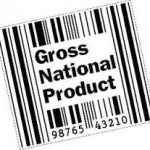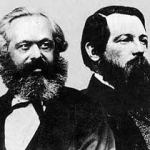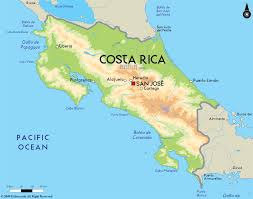What is it about intentionally jerking people’s chains that is so satisfying? Every once in a while I come across something that I just have to put up on  Facebook with minimal comment just because I know it will set off a tirade and firestorm of outrage from all possible directions. Usually I have no particular horse in the race—I just enjoy observing people get riled for no good reason other than that increased heart rate for a short period of time is healthy. In Morgan’s Medical Manual, getting riled on Facebook and thirty minutes of aerobic exercise at the gym provide the same amount of health benefits.
Facebook with minimal comment just because I know it will set off a tirade and firestorm of outrage from all possible directions. Usually I have no particular horse in the race—I just enjoy observing people get riled for no good reason other than that increased heart rate for a short period of time is healthy. In Morgan’s Medical Manual, getting riled on Facebook and thirty minutes of aerobic exercise at the gym provide the same amount of health benefits.
My most recent opportunity occurred a couple of months or so ago when someone posted on my Facebook wall a link to “The Happiness Level of Every Part of the World in One Incredible Infographic.” My only posted comment was “I guess money can’t buy happiness after all!”
I spent the fall semester with first-semester freshmen frequently exploring various perspectives on happiness from the ancient world, from Homer and the Jewish Scriptures through Socrates, Plato and Aristotle to the Stoics, Jesus, Paul and Boethius. Always ready to add another perspective to the list, I clicked on the link and immediately thought “Oh yes . . . I absolutely have to put this up on Facebook. Outrage will definitely ensue.” Why? Because at the top of the list of happiest nations is Costa Rica, followed by Vietnam, Colombia, Belize and El Salvador. The U.S. did not fare well, coming in at 105, while many of the European countries were in the 40s and 50s. Clearly the usual measures of happiness, which invariably include  Gross National Product, were not dominant in this study. What were the criteria?
Gross National Product, were not dominant in this study. What were the criteria?
Within a few minutes, the expected responses starting popping up. Before he could have possibly read the article, a Facebook acquaintance posted “I’m sorry, but this map is absurd.” To which I responded “’Absurd’ is a word we all use to describe something that does not match up with our expectations.” Clearly any calculation concerning happy nations that places Costa Rica and Vietnam #1 and #2 in happiness raises eyebrows. This in itself does not make the calculation “absurd”—that adjective cannot be applied until the criteria used in the survey are made clear. So what makes Costa Ricans so happy?
According to the article,  The Happy Planet Index is quickly becoming one of the world’s go-to indexes when it comes to measuring the stability and performance of the Earth’s nation states. We have come to assume that the best measures of progress, even of happiness, are financial measures. I was reminded of this just this past week as I spent two hours in seminar with eighteen freshmen considering Marx and Engels’ The Communist Manifesto. The authors eloquently and passionately describe how capitalism has reduced everything that matters to a cash value, drowning everything from meaningful work to
The Happy Planet Index is quickly becoming one of the world’s go-to indexes when it comes to measuring the stability and performance of the Earth’s nation states. We have come to assume that the best measures of progress, even of happiness, are financial measures. I was reminded of this just this past week as I spent two hours in seminar with eighteen freshmen considering Marx and Engels’ The Communist Manifesto. The authors eloquently and passionately describe how capitalism has reduced everything that matters to a cash value, drowning everything from meaningful work to  intimate family connections in “the icy waters of egotistical calculation.” Yet at least in the West we continue to assume that the best measure of success, happiness and fulfillment is best achieved in terms of dollar signs. We continue to believe that if we somehow get the right numbers to go up, we are going to be better off and things in general will be better for everyone. Why?
intimate family connections in “the icy waters of egotistical calculation.” Yet at least in the West we continue to assume that the best measure of success, happiness and fulfillment is best achieved in terms of dollar signs. We continue to believe that if we somehow get the right numbers to go up, we are going to be better off and things in general will be better for everyone. Why?
In a recent Ted Talk Nic Marks, one of the creators of The Happy Planet Index, describes how he and his colleagues began asking people all over the world a simple question—what is most important to you in life? What do you want out of life? The answers actually were not that surprising.
People all around the world say that what they want is happiness, for themselves, for their families, their children, their communities. Okay, they think money is slightly important. It’s there, but it’s not nearly as important as happiness, and it’s not nearly as important as love. We all need to love and be loved in life. It’s not nearly as important as health. We want to be healthy and live a full life. These seem to be natural human aspirations. Why are statisticians not measuring these?
Inspired by Robert Kennedy’s comment that “the Gross National Product measures everything except that which makes life worthwhile,” Marks and his colleagues began to think about how happiness and well-being might be measured within the boundaries of environmental limits They suggest that the ultimate outcome of a nation is how successful is it at creating happy and healthy lives for its citizens. Rejecting the antiquated notion that measuring a nation’s GDP is the best indicator of their overall well-being, the HPI calculates direct feedback from a nation’s population, along with the ecological footprint the nation has and their average life expectancy. The HPI is unique in that it takes the overall environmental sustainability of a nation into account. How much happiness does a country generate, and how does it use its natural resources to do so? For instance, although U.S. citizens might claim to be relatively happy and live long lives on the average, we rank 105 because of our “blood red colored ecological footprint score.” Long, happy lives at the expense of abusing our greatest scarce natural resource—Earth.
Long, happy lives at the expense of abusing our greatest scarce natural resource—Earth.
At the top of the list is little Costa Rica. What’s going on there?
Costa Rica — average life expectancy is 78-and-a-half years. That is longer than in the USA. They are, according to the latest Gallup world poll, the happiest nation on the planet—happier than anybody; more than Switzerland and Denmark. They are the happiest place. They are doing that on a quarter of the resources that are used typically in [the] Western world. 99 percent of their electricity comes from renewable resources. Their government is one of the first to commit to be carbon neutral by 2021. They abolished the army in 1949. And they invested in social programs — health and education. They have one of the highest literacy rates in Latin America and in the world.  And they have that Latin vibe, don’t they. They have the social connectedness.
And they have that Latin vibe, don’t they. They have the social connectedness.
A current events FYI: Despite our best efforts over the past half century or more, Cuba (12) scored much better than the US (103) on the Happy Planet Index. Jeanne and I visited Cuba with an academic delegation a bit over a decade ago and this result fits my observation–people who are poor and challenged in all sorts of ways, but also resourceful, proud, and happy. Go figure.
All sorts of responses, of course, are possible—but it definitely made me think. As a teacher I know that one of the most effective tools in the learning process is anything that messes up everyone’s preconceptions and lets us know that one person’s “no brainer” is the next person’s big question. Nothing better than fiddling with the dials a bit, tuning in a new station with fresh assumptions, and seeing how different things look and sound. I’m not an economist or a statistician and do not have the tools to challenge or affirm the Happy Planet Index directly. But I am a human being and know from almost six decades of experience that there are many things more important to happiness than money—precisely the things that the HPI is interested in. Of course, putting a Latin American beach in Rhode Island would help.













